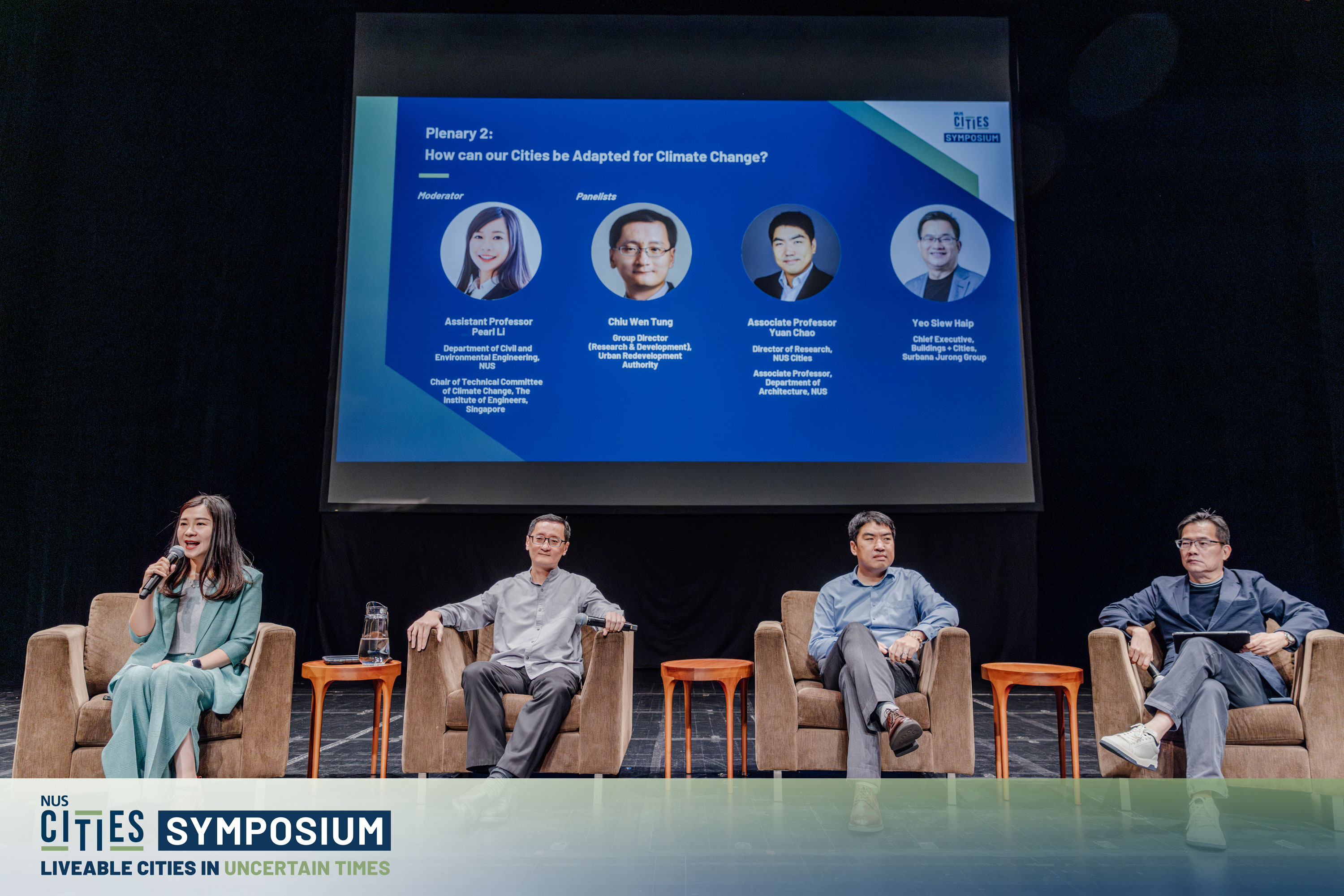Yeo Siew Haip lends insights on regenerative design at NUS Cities Symposium
23 September 2024
How can liveable cities thrive in uncertain times?
SAA’s Chief Executive, Yeo Siew Haip, participated in a plenary discussion at the National University of Singapore (NUS) Cities Symposium 2024, representing the SJ Group as Chief Executive, Buildings + Cities, where he joined an esteemed panel of experts contributing to the discussion of the year’s theme: ‘Liveable Cities in Uncertain Times’.
Worldwide, cities are undergoing rapid urbanisation to evolve into vibrant global hubs of social, economic, and technological innovation. While these aspirations are exciting, the path is hindered by a plethora of challenges including the long-pressing issue of climate change. How can cities be designed to remain liveable, resilient, and sustainable through the test of time?
The day-long event delved into Singapore’s approach to urban planning, envisioning challenges as opportunities. Experts spoke on climate and planning policy, climate mitigation, adaptive and regenerative design, age-friendly cities as well as mobility and transport. In land-scarce Singapore, we all play a crucial role as stewards of our land and resources, shaping the future of our built environments.
During the second plenary session, which centred around how cities can be adapted to climate change, Siew Haip emphasised an urgent need for those in the built environment to go beyond sustainable design and embrace regenerative approaches. Such approaches include the creation of biodiverse and nature-led environments through the adoption of biomimicry principles, and biophilia, where natural systems and structures inspire design.
These strategies have already taken root in Singapore, where both designers and policymakers have embraced biophilic design principles. Notable examples around us include buildings with plants along their vertical surface, thus forming a skin that cools the structure while encouraging the creation of biodiverse habitats. Still, policies can be further strengthened to encourage regenerative approaches, and education should take a larger step to equip current and future designers with the right tools for a more regenerative tomorrow.
While we cannot reverse climate change, we can continually look for ways to adapt our cities and spaces to the realities of a hotter, wetter world.
Joining Siew Haip on the panel were:
- Assistant Professor Pearl Li, Department of Civil and Environmental Engineering, NUS; and Chair of Technical Committee of Climate Change, The Institution of Engineers, Singapore (Moderator)
- Chiu Wen Tung, Group Director (Research & Development), Urban Redevelopment Authority
- Associate Professor Yuan Chao, Department of Architecture, NUS; and Director of Research, NUS Cities.
The symposium is organised by NUS Cities, a university-wide interdisciplinary entity forming a collaborative platform for education, research, and advisory services. The annual event draws upon the expertise of a diverse network of experts from the university and globally.

© 2024 SAA Architects Pte Ltd. All rights reserved.
